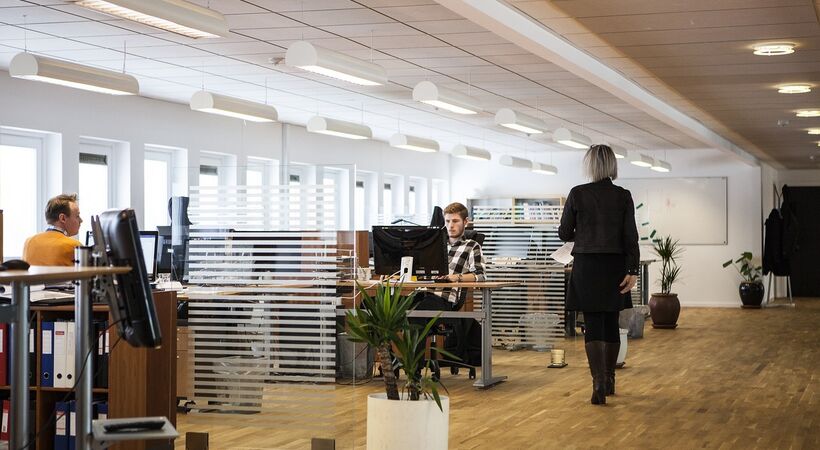Mark Catchlove, director global insight group, MillerKnoll looks at what makes a good place to work.
Over the last decade, the workplace has undergone substantial change, driven by a confluence of factors including the pandemic, tech advancements, and evolving employee expectations. The pursuit of meaningful work, better wellbeing and deeper collaboration has led employees to favour offices that promise a sense of connection, fulfilment, and better overall job satisfaction.
This has sparked debate about what truly makes a workplace well-equipped to attract and retain the best talent. The CIPD believe flexible contracts and a work-life balance come first [1], whereas a newly released report by Glassdoor highlights that the top companies this year will likely offer great company benefits, innovative products and a strong company culture [2].
What is clear, is that unlike a few decades ago, a good pension and a steady income are just not going to cut it for the modern worker.
Changing employee expectations
Organisations need to recognise the importance of aligning with the new expectations of employees. The traditional 9-to-5 model has given way. Employers can’t afford to be left behind, or else they risk employees jumping ship to other businesses that have adopted modern approaches.
An example of this is flexible working, which isn’t just a nice to have, it’s a requirement for many employees. 8.7 million full-time workers say they want to work flexibly, according to the Equality and Human Rights Commission, which also found that 92% of people born between 1980 and 2000 identified flexible work arrangements as a top priority when job hunting [3]. By embracing company policy that accommodates a variety of workstyles and preferences, organisations can foster a more engaged and productive workforce.
Next-generation workspaces
When employees are in the office, the space must also be an inviting place for everyone, it needs to be designed with impact. Today, diversity and inclusion are not merely buzzwords but integral components of a company's DNA, so it’s great to see a shift towards catering to the wider needs of employees. For example, we’re seeing employers design workspaces that reflect employees’ neurodiversity. This means providing quiet spaces in offices, calmer designs and assistive technology.
How people feel affects their day-to-day contributions at work. So it’s crucial that employers look at how they can improve wellbeing. Another consideration is having dedicated rooms for nursing mothers to pump breast milk. A private room serves as a sanctuary, allowing mothers to express milk without feeling rushed or uncomfortable. This has the potential to go a long way to promote diversity, removing an additional barrier faced by women in the workplace.
Establishing a dedicated prayer room also holds significant value for employers looking to create an inclusive and supportive environment. Such a space not only caters to the diverse religious practices of employees but also fosters a culture of respect and understanding.
Beyond dedicated rooms, inclusive workplace design also extends to flexible workspaces that cater to different modes of work. This might include open collaboration areas for team projects, hideaways for focused work, and comfortable lounges for informal team meetings. Having access to adjustable desks and ergonomic furniture lets employees customise their personal workspaces to suit their individual needs. Our experience has shown that having physical spaces designed with employees involved, not just for them, influences their job satisfaction and productivity.
The time to act is now
There are various factors that determine the future success of an organisation. Ultimately, a good workplace in 2024 is a dynamic, inclusive and an adaptive environment that empowers its workforce, fosters connection, and aligns with the evolving expectations and values of its employees.
Companies that successfully move with the times not only attract top talent, but also cultivate a resilient and adaptable workforce positioned for success.
[1] https://www.cipd.org/globalass...





